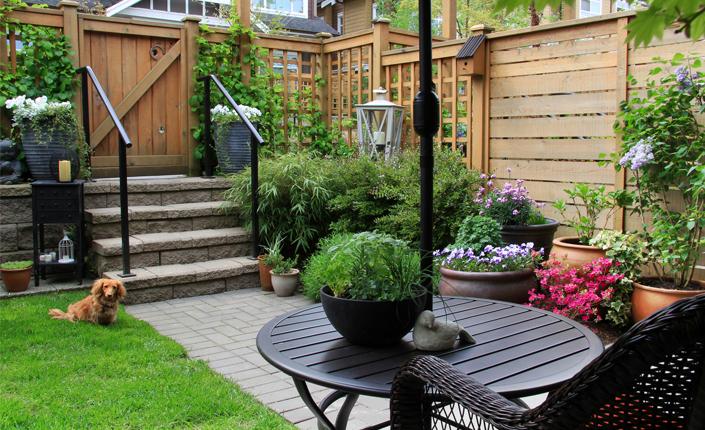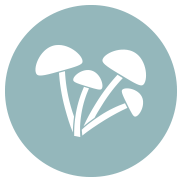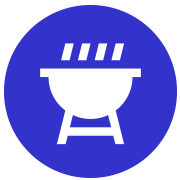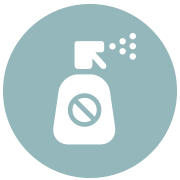
Backyard Pet Hazards
A fenced-in yard with room to play and explore might seem like the ideal sanctuary for your pet, but there are dangers every pet owner should be aware of.
We’ve compiled a list of our top 6 backyard hazards.

Holes in Fence
Every six months or so, it’s important to do a parameter check of your backyard fencing. Walk around to check for any gaps, holes or potential escape routes. Depending on the type and size of pet you have, the kind of fencing you choose (wire or wood), as well as its height is important. Make sure all gates have a secure latch or lock to prevent anyone from coming in, out or leaving the gate open.

Mushrooms

BBQ / Firepit
Never leave a firepit unattended. Keep a curious pet on a short leash nearby with constant supervision. When you are done, be sure to extinguish the fire with plenty of water and scrap the sticks, logs or grills that may contain any lingering food remnants. Most BBQ’s although elevated, still pose a threat to the curious pet whose nose is filled with the sweet smells of cooked meats and tangy summer sauces. After use, BBQs should be cleaned, closed and covered. It’s also important for any brushes or utensils to be cleaned and stored out of reach.

Wildlife

Fertilizers
Everyone wants a lush green and weed free lawn, but, fertilizers can contain harmful chemicals and additives that can poison and make your pets sick. To avoid a poisoning risk to your pet, it’s important to read all product instructions carefully and keep your pets inside during application and preferably off the lawn for 48hrs. During this time, it’s best to take your dog for a walk or to the park to do his business. If you are unable to do so, washing your pet's paws after being out on the lawn is always a good habit to get into so if they lick their paws they won’t ingest anything toxic.

Compost
If you compost – paws up! However, it’s important to make sure you are doing so appropriately. Pets should not have access to the compost bin or pile as this can be a source of dangerous pathogens that can seriously harm or kill your pet. Moldy foods have the potential to cause neurological symptoms such as tremors or seizures, which is why compost should always be fenced off or locked in a secure bin.
If you think your pet has been poisoned, it’s important to contact your veterinarian or a pet poison specialized right away. The Pet Poison Helpline is available 24 hours, seven days a week for $85.00 US per incident. The call is free if you’re a Pets Plus Us Member and are eligible for Blue Ribbon Benefits. Learn more and get a quote today: https://www.petsplusus.com/insurance-coverage/accident-illness-coverage
